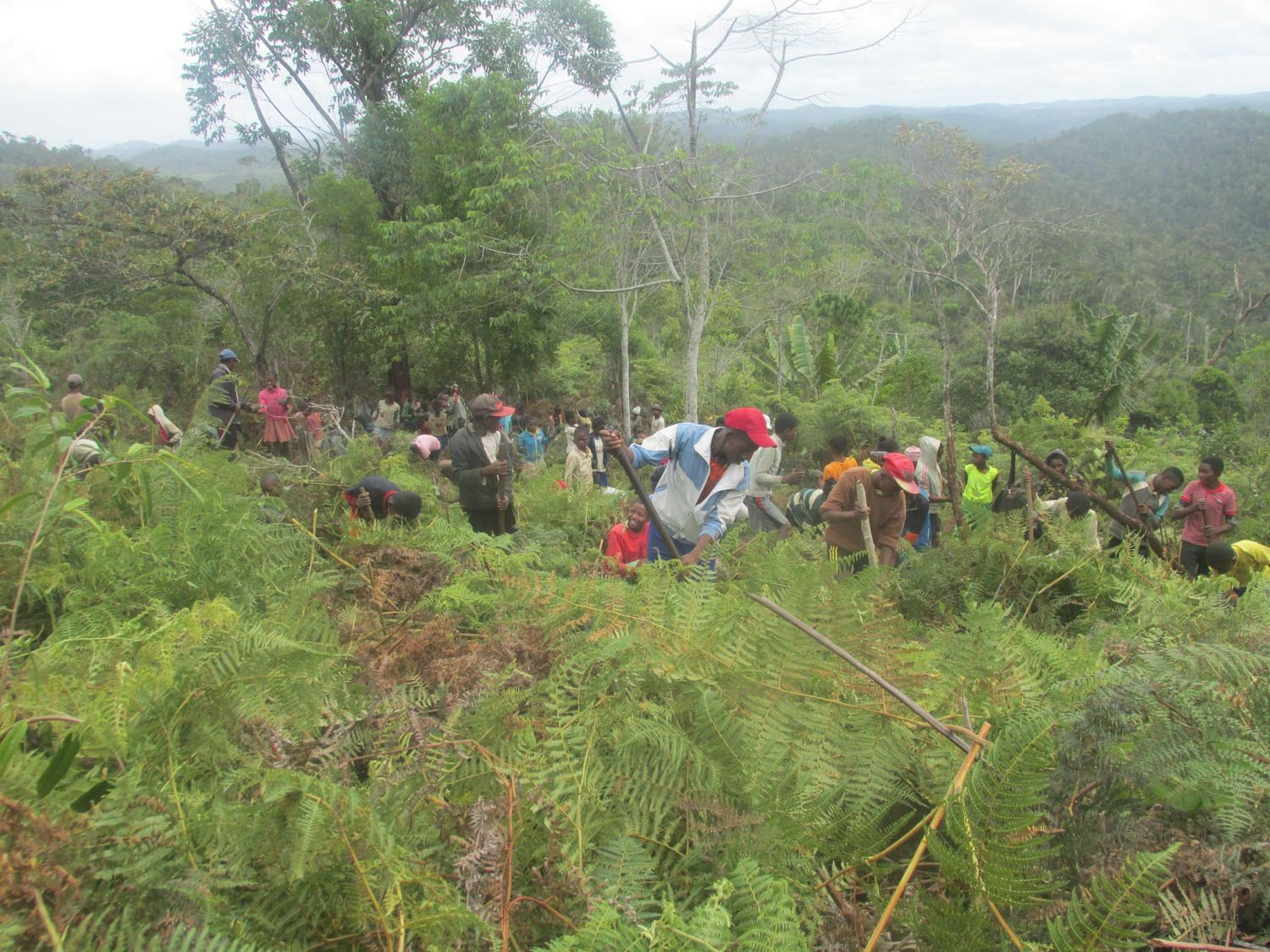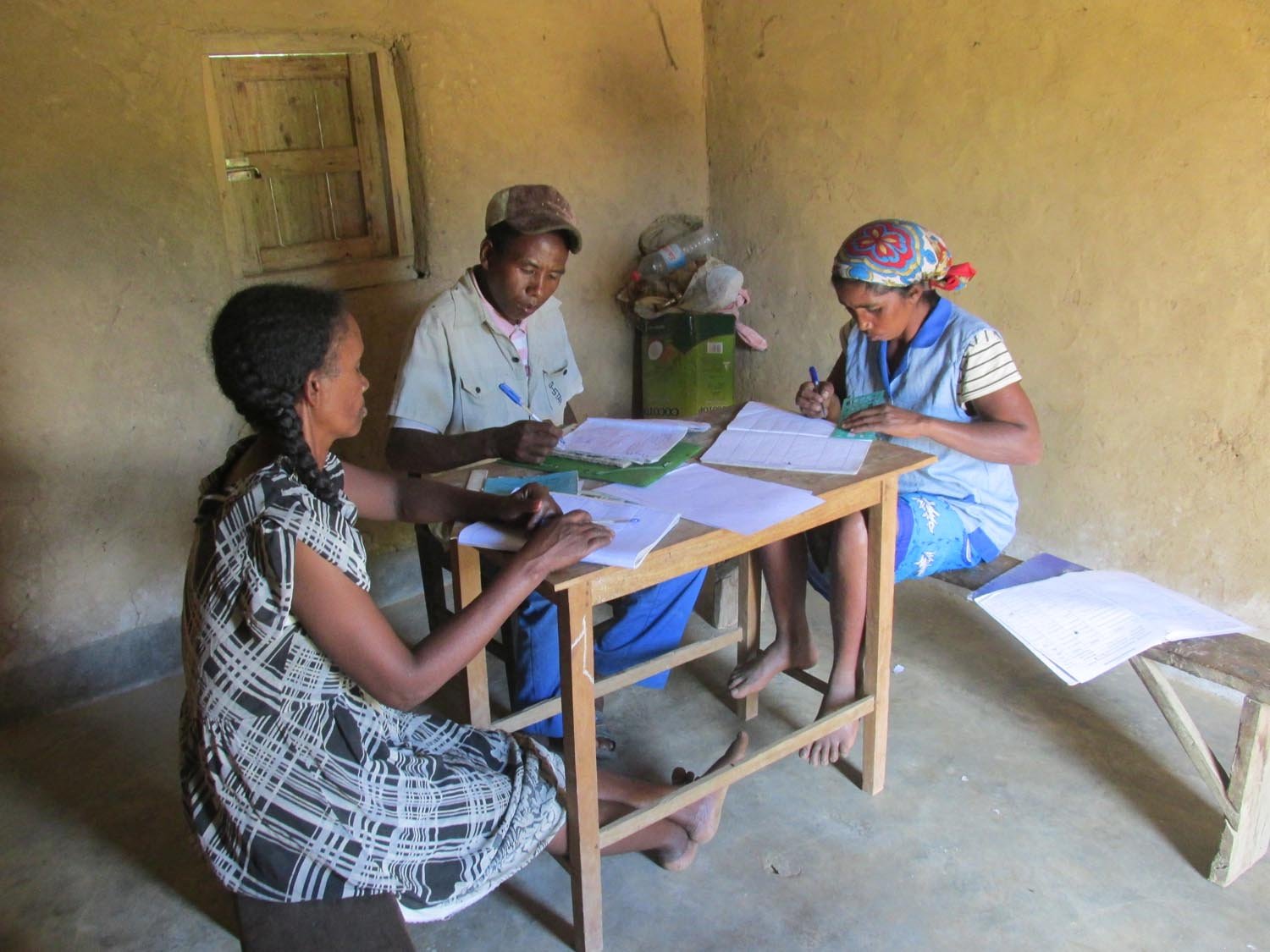We are proud to announce a new collaboration with The Critical Ecosystem Partnership Fund whose support is making it possible for an important multi-year community-focused project to begin in a section of the Ankeniheny-Zahamena Corridor in eastern Madagascar known as CAZ West. The main objective of this new project is to empower the local communities to implement actions to improve the resilience of species, ecosystems, and human populations to climate change.
We have been working in this area since 2010, when we began our work in Madagascar which initially focused on the protection of the Critically Endangered greater bamboo lemur.
.jpg?width=1500&height=1125&name=CAZ%201503%20greater%20bamboo%20lemur%20by%20Lucien%20(71).jpg) Greater Bamboo Lemur CAZ West © Lucien Randrianarimanana, The Aspinall Foundation Madagascar
Greater Bamboo Lemur CAZ West © Lucien Randrianarimanana, The Aspinall Foundation Madagascar
Community-led conservation initiatives have been at the heart of our work in Madagascar for over a decade. Project activities have incorporated a combination of direct species-specific conservation action, combined with awareness-raising, habitat restoration and local community development. Our team has spent time developing trust and building relationships with the communities across our project sites, and this has resulted in activities being well-supported by local villages across all genders and age groups.
 Habitat restoration work being carried out by local people at one of our project sites in CAZ West © The Aspinall Foundation Madagascar
Habitat restoration work being carried out by local people at one of our project sites in CAZ West © The Aspinall Foundation Madagascar
Positive results have been achieved and population numbers in the project area of target species such as the greater bamboo lemur, diademed sifaka, indri and black-and-white lemur have generally stabilised.
.jpg?width=1500&height=1125&name=diademed%20sifaka%20and%20baby%20in%20CAZ%201711%20by%20Lucien%20(2).jpg) Diademed sifaka and baby © Lucien Randrianarimanana, The Aspinall Foundation Madagascar
Diademed sifaka and baby © Lucien Randrianarimanana, The Aspinall Foundation Madagascar
However, they remain Critically Endangered and at high risk of extinction. Our community-based activities have been supporting local people in a gradual transition towards more sustainable lifestyles, but rural communities are still at the stage where they are extremely vulnerable to negative impacts. A recent example of this has been the coronavirus pandemic where we have witnessed an increase in threats and pressures like deforestation due to fire and illegal logging; conversion of forested areas, grassland, and wetland into cropland; as well as reliance on slash-and-burn agriculture to provide fertilizer and modification to the soil.
.jpg?width=1500&height=1125&name=2022%20threats%20from%20Sakalava%20by%20Safidy%20during%20field%20work%20in%20CAZ%20end%20Oct%20begin%20of%20Nov%20(5).jpg) Evidence of deforestation in CAZ West, October 2022 © Safidinirina Nantenaina, The Aspinall Foundation Madagascar
Evidence of deforestation in CAZ West, October 2022 © Safidinirina Nantenaina, The Aspinall Foundation Madagascar
Although the significant impact of the pandemic will be evident for some time it is relatively transitory in nature, unlike the existential threat posed by climate change.
In Madagascar, in recent years the significant changes in rainfall patterns because of climate change have had an increasingly damaging impact on the already vulnerable food security of local people. The situation varies in different parts of the island, but in CAZ West there is an insufficiency of rain during the rainy season as well as an abundance of rain during the off-season. This is leading to a shift in the agricultural period. In addition, the pre-existing poor farming practices have already depleted soil productivity, and harvests are either failing completely or are significantly reduced. To produce sufficient food, local people are driven further into unsustainable farming, unaware that even if they achieve a short-term result, they are making the overall situation worse. In an attempt to increase food production, primary forest is destroyed to extend the land to be used as cropland. This only serves to increase the problem exponentially, creating a cycle of escalating environmentally damaging behaviour. Local community members working on a project report © The Aspinall Foundation Madagascar
Local community members working on a project report © The Aspinall Foundation Madagascar
Our new project in CAZ West, made possible thanks to the support of CEPF, is designed to help the local communities adapt to climate change through a combination of raising awareness and training in new skills such as climate-smart agriculture and agroforestry while carrying out habitat restoration activities. The high dependency of rural communities on their natural environment is a central reason for the key threats to the local habitat but it also provides the opportunity for a successful long-term strategy for protecting and restoring the ecosystem on which the environment depends.
A significant level of planning has been undertaken when developing this project, including setting targets to measure the impact and efficacy of the activities. Throughout the project, our team in Madagascar will be working closely with the relevant community associations and the families in the local communities. In future updates, we will share with you more details on the activities taking place, and how they relate to the impacts the project hopes to achieve.
The Critical Ecosystem Partnership Fund is a joint initiative of l’Agence Française de Développement, Conservation International, the European Union, the Global Environment Facility, the Government of Japan and the World Bank. A fundamental goal is to ensure civil society is engaged in biodiversity conservation.


